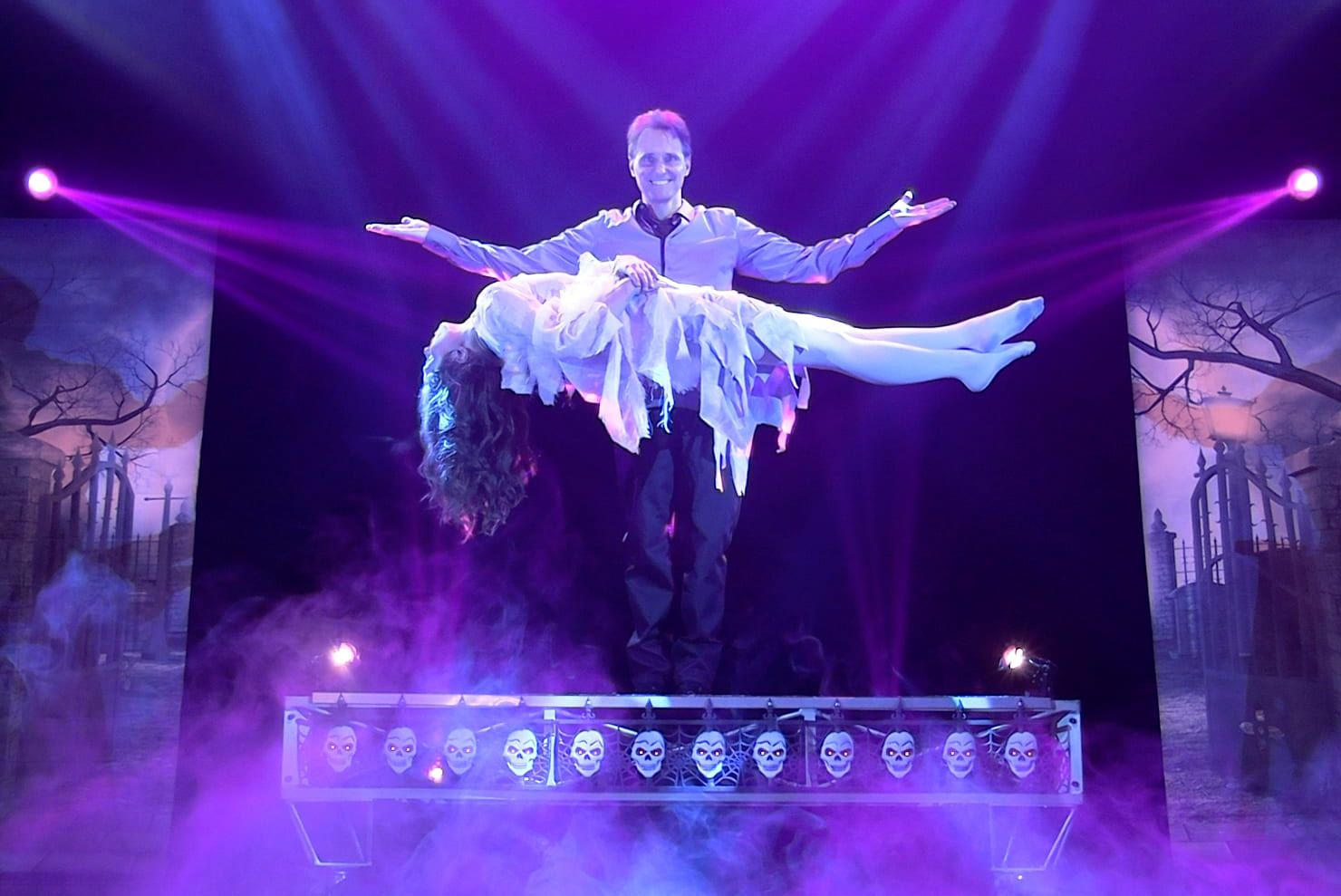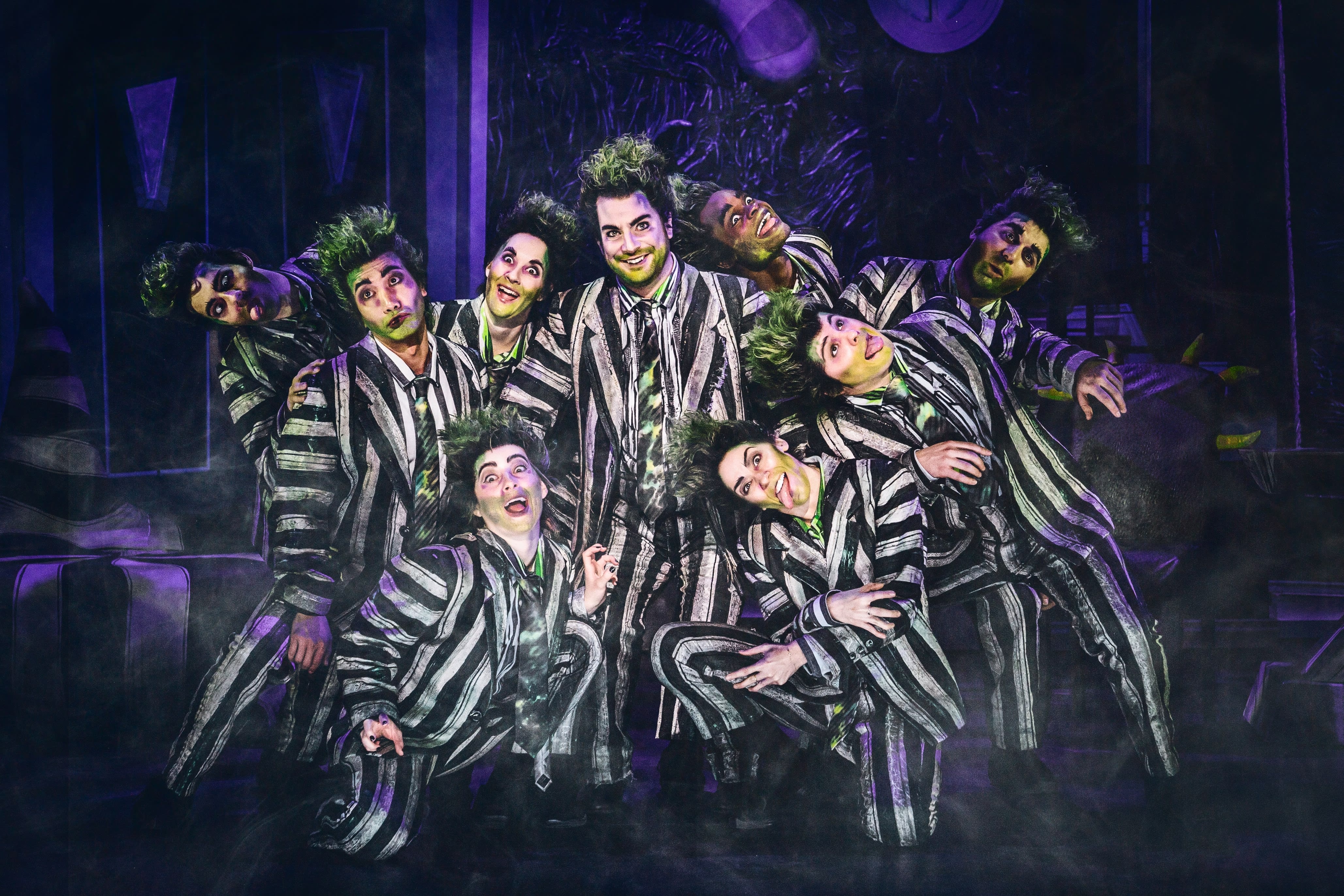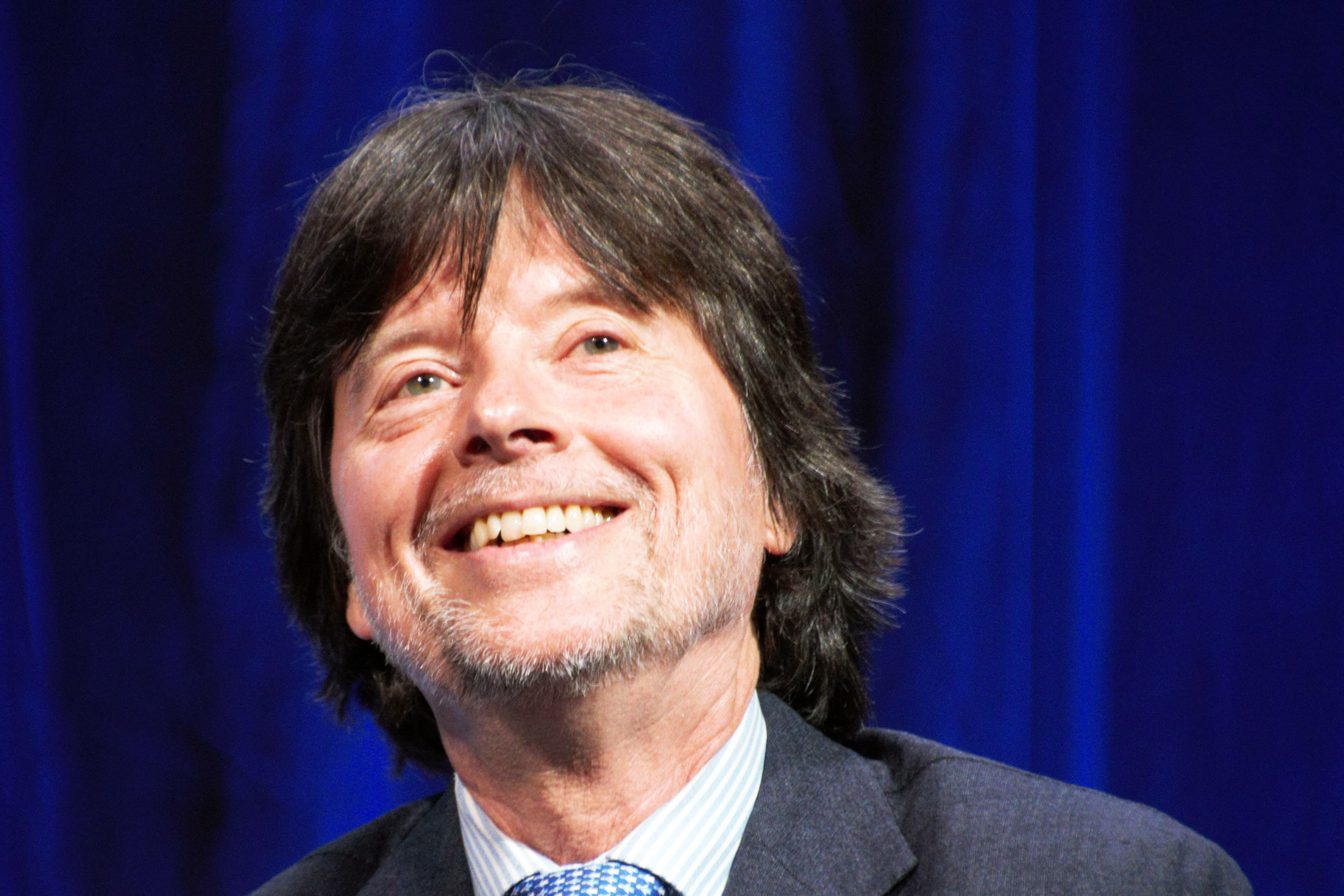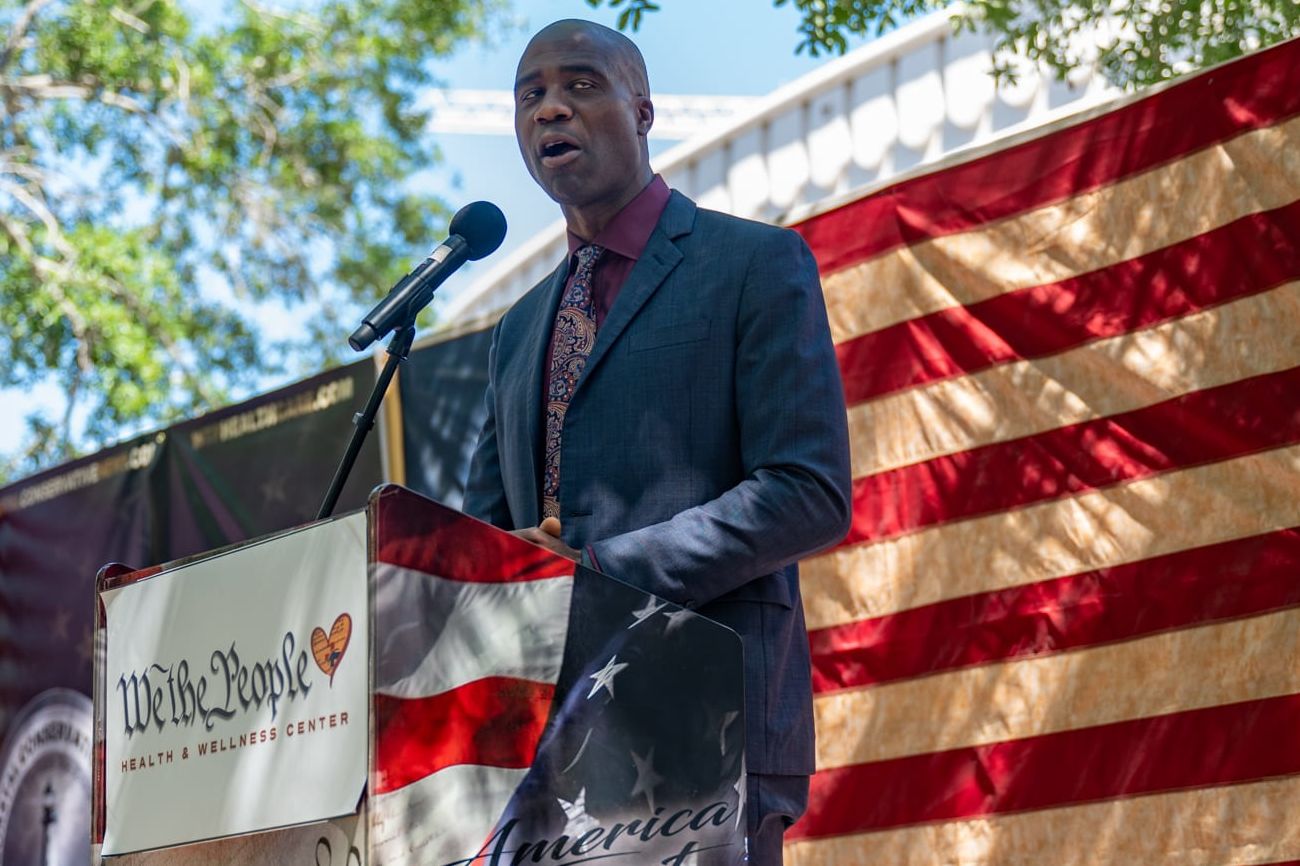At Town Hall, Ron Howard Shared Stories of His Long Hollywood Career
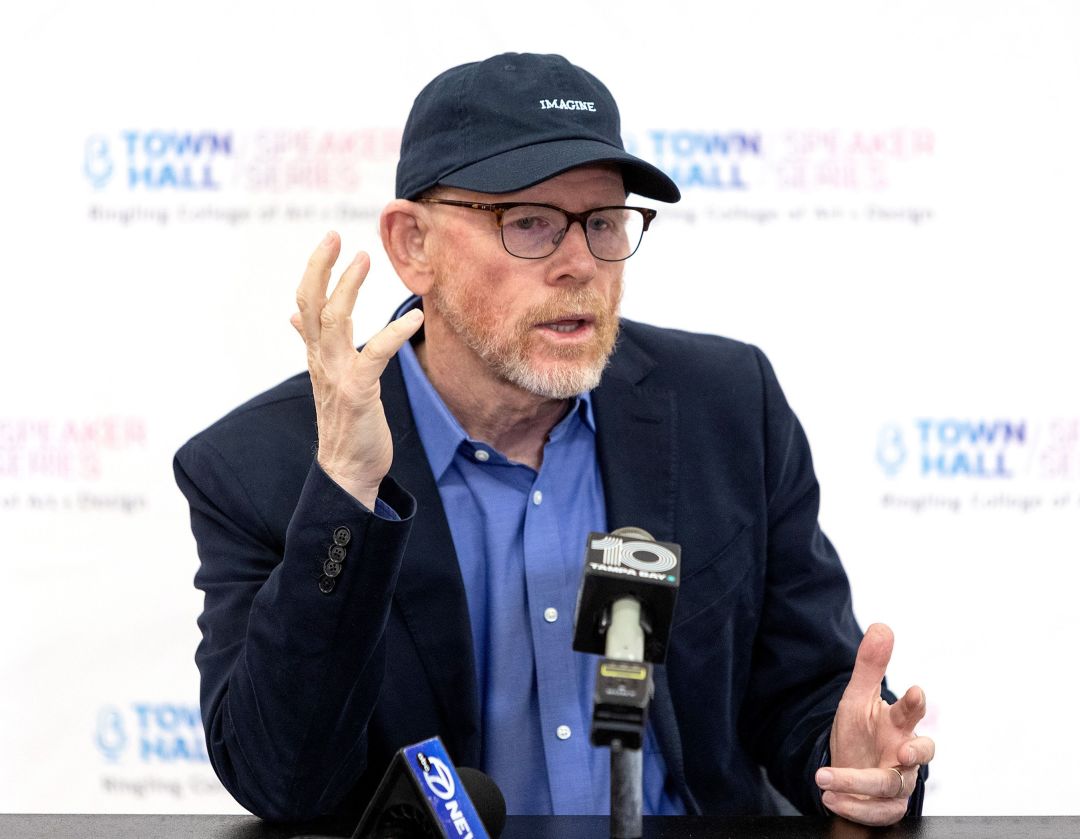
Image: Ringling College Town Hall
Teaching history, coaching high school basketball, or becoming a journalist—we’re lucky Ron Howard didn’t choose one of the careers he would have pursued if he hadn't become an award-winning actor, director and producer.
Instead, we watched him grow up on screen—first as Opie Taylor on The Andy Griffith Show and later as Richie Cunningham on Happy Days. Now, Howard, 70, is one of the most celebrated directors of his generation, with a lauded career that's spanned decades.
Still, he says, his approach to work remains grounded in what he describes as “Midwestern Zen.”
“I guess you could call it pragmatism,” Howard said at a press conference before kicking off Ringling College Library Association's Town Hall lecture series at the Van Wezel Performing Arts Hall on Monday. “My mom called the family ‘sophisticated hicks.’ She grew up in rural Oklahoma, and my dad also had a rural background and dreamed of being a singing cowboy.” Both of his parents went on to have careers in writing and acting, and Howard and his father often worked together on Howard's projects.
During his talk, Howard reflected on his long career and the events that molded his Hollywood journey, which began when he was just a child.
“The Andy Griffith Show was a creative environment, even if I didn’t fully understand the audience or what the show meant back then,” he said. “At age 6, I’d make suggestions, because that was welcomed, and [the production team] rejected all of them. But in one episode, when I was 7, I told them, ‘A kid wouldn’t say [this line] like that.’ They actually went with my suggestion. That wave of inclusion struck me. It felt incredible to be heard.”
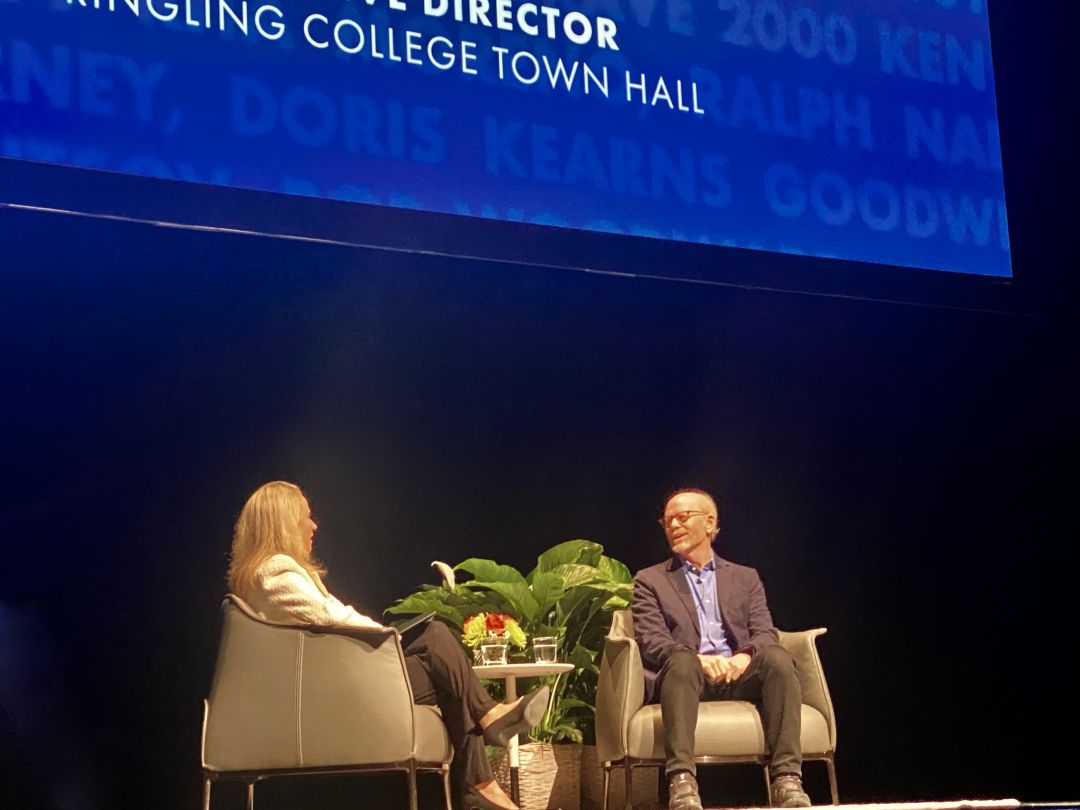
Image: Kim Doleatto
But Andy Griffith, the show's star, also kept it real. “When I asked why they didn’t take my other suggestions, Andy said, ‘Well, that was the first one that was any good,'” Howard said.
After eight years as Opie, transitioning from child stardom to adult success wasn’t easy. “I had to learn cursive just to sign autographs,” Howard recalled. “And kids at school bullied me—Opie rhymed with Dopey, so they had fun with that.”
His father Rance’s influence helped. “There was an opportunity to launch an Opie clothing line for kids when I was about 8 or 9," Howard said. "It would’ve made more money than I earned on the show, but my dad turned it down. He said, ‘You wouldn’t learn anything from that,’ and I agreed."
Howard's passion for directing started young, too. He entered the Kodak Teenage Film Makers Competition as a teenager and won second place. “I won $100 and two rolls of film," he recalled. "My brother, who acted in the film, demanded a cut of the winnings."
Howard’s then-girlfriend, Cheryl, now his wife, was also in the film. “Cheryl didn’t have much interest in acting, but she’s in almost everything I direct now, even if it’s just a small part," he said. "It’s like a ‘Where’s Waldo?’ game I play with the audience. Including her has become a little superstition. Even in films that have no need for a small female role, she's dressed up in a fake mustache."
Hollywood Lessons and Challenges
Howard’s journey through Hollywood wasn’t without its harder moments. Reflecting on his time on Happy Days, he said, “It was a great opportunity, but I always knew it would be short-lived. When [Henry Winkler's character] the Fonz became the focus, my role diminished.” That experience, he said, taught him about the colder side of the entertainment industry.
Howard eventually left Happy Days to pursue directing. His big break came after he reluctantly starred in a Roger Corman-produced film called Eat My Dust in 1976. “I knew I wanted to direct. I had a script [Grand Theft Auto] that I wanted to pitch, and I saw Corman as someone who gave young filmmakers a chance," Howard said. "Back then, there were only three networks and six major studios, so opportunities were limited.”
Howard approached Corman, who'd launched the careers of Francis Ford Coppola and Martin Scorsese, and shared his directorial aspirations. But Corman had his own ideas. “Roger told me, ‘I believe in young people on the run. If you do Eat My Dust and it’s a success, you can direct Grand Theft Auto.’ Funny enough, Grand Theft Auto was actually the second title he considered for Eat My Dust."
Howard accepted the deal and went on to write, direct and star in Grand Theft Auto, which Corman produced. In the end, he also learned a lot from his experience on the set of Eat My Dust. “It was so low budget, but that taught me how to problem-solve on the fly,” he said.
Lessons from a Legend
Learning the ropes of directing is one skill set—dealing with actors is another one entirely. Howard’s encounter with Hollywood legend Bette Davis during the filming of his made-for-TV film Skyward was a crash course in ego management. His father told him not to be intimidated by her.
“She didn’t agree with some of my casting for Skyward,” he said. “She kept calling me ‘Mr. Howard.' When I asked her to call me Ron, she said, ‘I’ll call you Mr. Howard until I decide whether I like you or not.’”
While Davis was initially skeptical of the young Howard directing her, he ultimately won her over. “I helped her with one particular scene, and it went really well," Howard said. "At the end of the day, she said, ‘OK, Ron, see you tomorrow,’ and even gave me a pat on the ass.”
Howard’s father's advice not to be intimidated by stars like Davis proved invaluable in other collaborations, too. “It helped me work with Russell Crowe on A Beautiful Mind and later on Cinderella Man," Howard said. "He's a brilliant artist, but also demanding."
How Tech and AI Are Changing the Industry
Stars' egos aside, navigating Hollywood’s ever-changing landscape requires a lot of flexibility. “Succeeding requires balancing passion with pragmatism,” Howard said. “There’s a duality: The bottom line drives investors, but for creators, it’s all about the story. The key is understanding the industry’s dynamics without becoming cynical.”
Howard’s approach to directing is rooted in his love for storytelling. “Critics say I’m not stylish enough, but I let the story define the look and feel of my films," he said. "My goal is to create a world where actors can flourish and audiences can connect, whether it’s real or imagined.” Movies based on real events "scratch that journalistic itch" he has, he said.
His directorial process includes extensive test screenings. “Tools have changed—digital tech and AI are huge—but the core challenge of translating a script into a scene hasn’t," he said. "That’s why I still screen my films a lot. I want to see how they land with the audience. My days are often spent as a story editor, collaborating with writers."
Howard still wants to push creative boundaries, too. “I’ve done musicals, like The Grinch, and I’m open to exploring that further,” he said. “Supernatural stories also intrigue me. I haven’t done full-blown horror, but I’d be interested in exploring something in that realm someday.”
Currently, he's juggling several projects, including documentaries, films based on true events, and fantasy and sci-fi ventures. His production company, Imagine, is a busy place. "There’s always something exciting on the horizon," he said.
